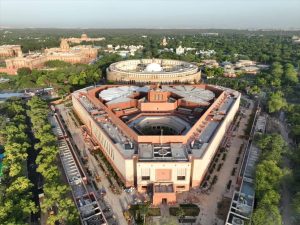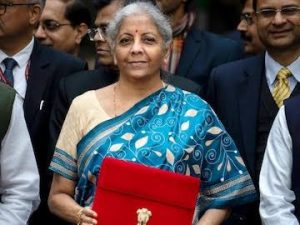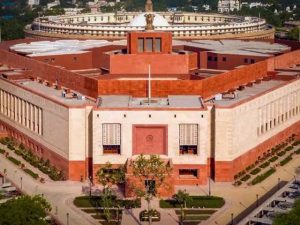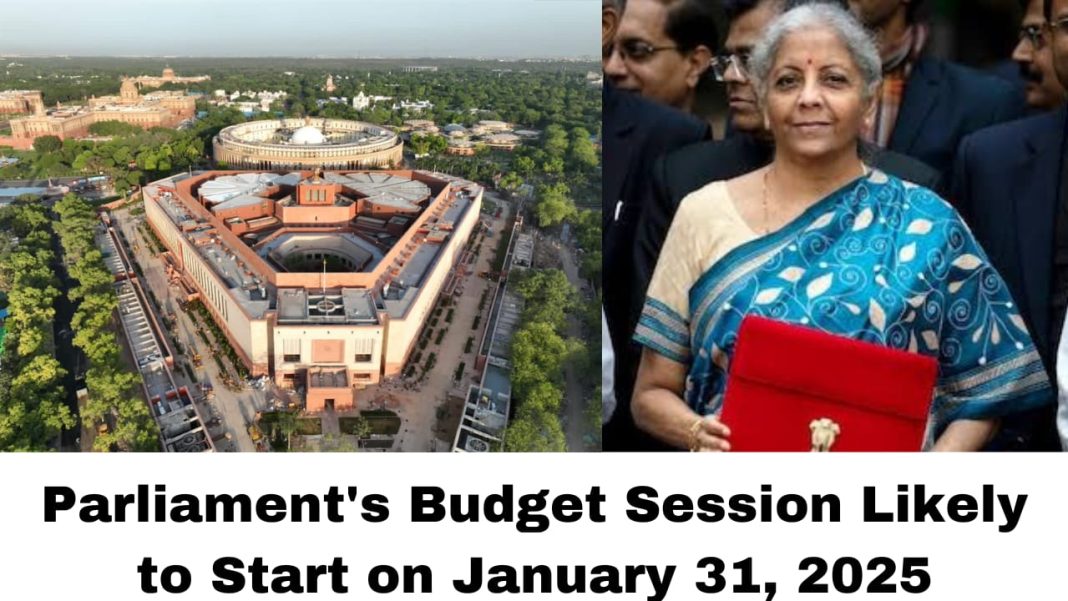Digital News Guru New Delhi Desk:
The Union government is preparing for the Budget Session of Parliament, a key event in the legislative calendar. The session is set to begin on January 31, 2025, and will run in two phases, concluding in April. The upcoming session will focus on the presentation and discussion of the Union Budget for the financial year 2025-26, among other legislative priorities.
Structure of the Session
The Budget Session is divided into two parts. The first segment will take place from January 31 to February 13, during which critical events like the President’s address, the presentation of the Economic Survey, and the Union Budget will occur. The second phase is expected to run from March 10 to April 4, 2025. This two-part structure allows Parliament to address both immediate fiscal priorities and other legislative matters after a brief interlude.

Key Events in the First Phase
The session will commence with President Droupadi Murmu addressing a joint sitting of both Houses of Parliament. This address is significant as it outlines the government’s policy agenda for the coming year and sets the tone for legislative and executive activities.
Following this, Finance Minister Nirmala Sitharaman will present the Union Budget on February 1. This will be her eighth consecutive budget presentation, marking her continued stewardship of India’s economic policy. The presentation of the Economic Survey, an annual document reviewing the state of the economy, will precede the budget. The Economic Survey provides a snapshot of economic performance and outlines policy priorities.
Budget Presentation and Expectations
The Union Budget is an essential instrument of governance, detailing the government’s fiscal priorities, revenue generation strategies, and expenditure plans for the next financial year. In the context of a recovering global economy and India’s ambitious developmental goals, the 2025-26 budget is expected to emphasize infrastructure investment, job creation, and digital transformation.
Given recent discussions about employment and economic growth, the government is likely to announce measures to address youth unemployment, boost manufacturing, and support small and medium enterprises. Enhancing rural development and agriculture, along with a continued focus on climate resilience, may also feature prominently in the budget.
Debates on the Motion of Thanks
One of the first major debates of the session will center on the Motion of Thanks to the President’s address. This debate provides an opportunity for members of Parliament to discuss the government’s policies and priorities as outlined in the President’s speech. The Prime Minister will conclude this debate with a comprehensive reply, addressing concerns and defending the government’s position.

Legislative Priorities
Apart from budget discussions, the session will see deliberation on several bills and policies. Key legislative priorities may include reforms in education, labor laws, healthcare, and digital governance. The government is also expected to push for the passage of bills pending from previous sessions.
Challenges and Expectations
The Budget Session often witnesses spirited debates and discussions, reflecting the vibrancy of India’s democracy. However, it is not without challenges. Opposition parties are expected to question the government on pressing issues such as unemployment, inflation, and social welfare policies. Recent controversies and geopolitical developments may also become focal points during discussions.
In addition, the government will have to manage its legislative agenda efficiently while addressing the concerns of diverse stakeholders. With the general elections in 2026 looming on the horizon, the government is likely to emphasize policies that resonate with the electorate.
Importance of the Budget Session
The Budget Session holds immense significance as it not only sets the economic agenda for the country but also reflects the government’s vision and priorities. It is an opportunity for the government to showcase its commitment to inclusive growth and responsive governance.
The session is also a platform for constructive criticism and accountability, with members of Parliament scrutinizing the government’s policies and expenditures. This process strengthens the democratic framework and ensures that the government remains answerable to the people.

Conclusion
As the Budget Session of Parliament begins on January 31, 2025, all eyes will be on the Finance Minister’s budget presentation and the government’s legislative agenda. The session is expected to provide critical insights into India’s economic and policy direction, influencing the nation’s development trajectory. With robust debates and informed discussions, the session will uphold the democratic ethos of the country, reflecting the collective aspirations and concerns of its citizens.
You May Also Read: Coldplay’s Mumbai and Ahmedabad Concerts: What Fans Need to Know








